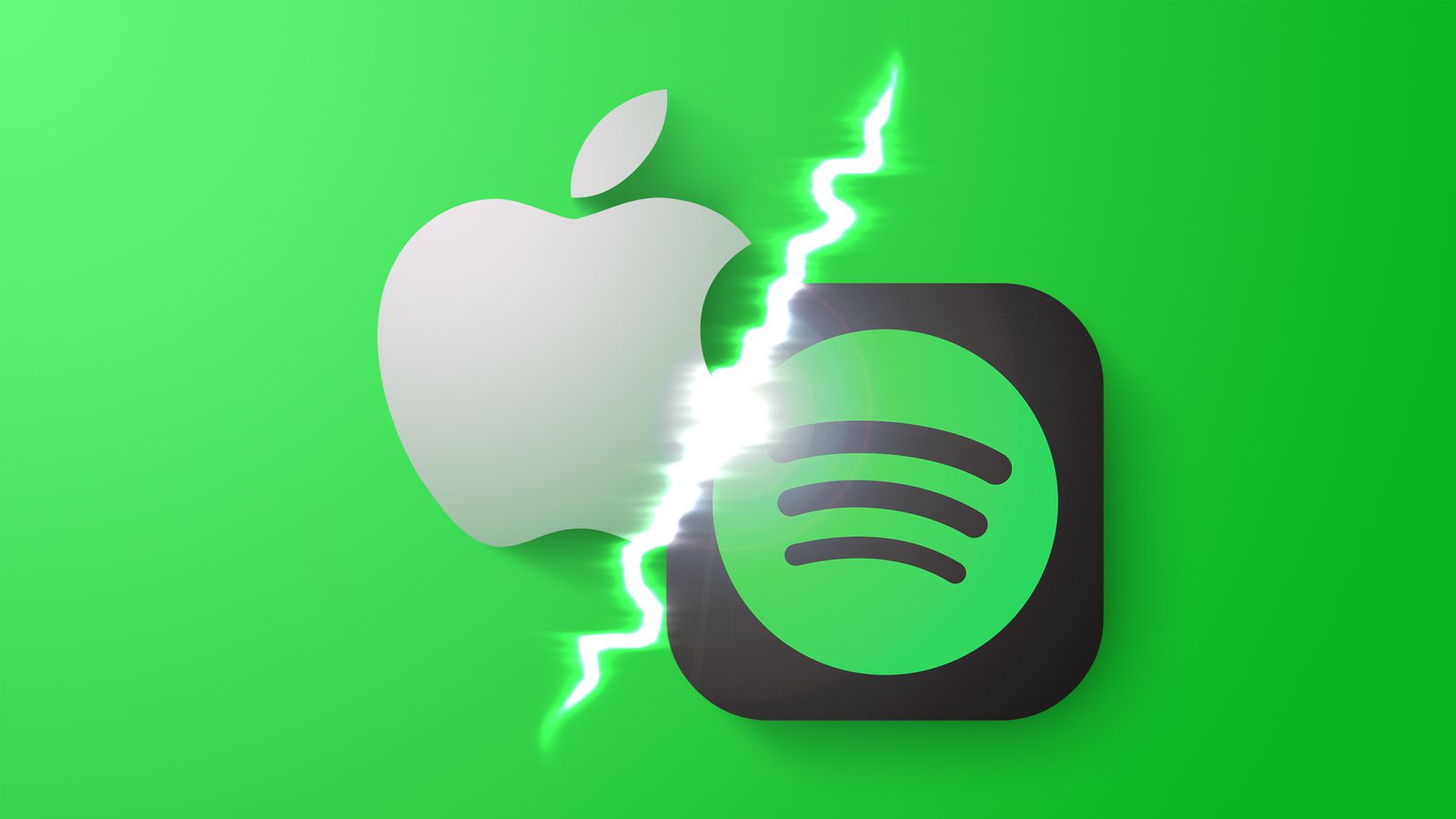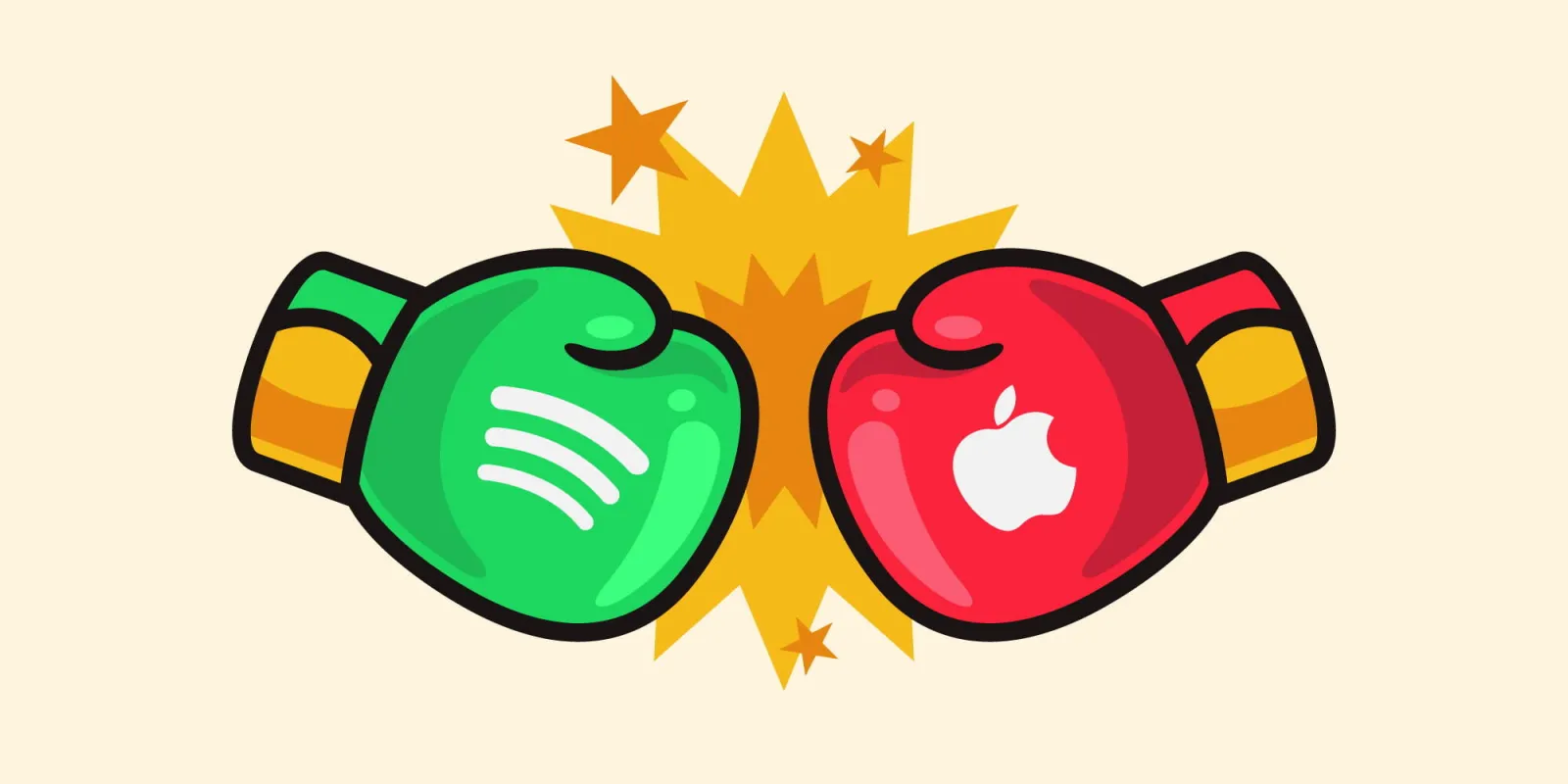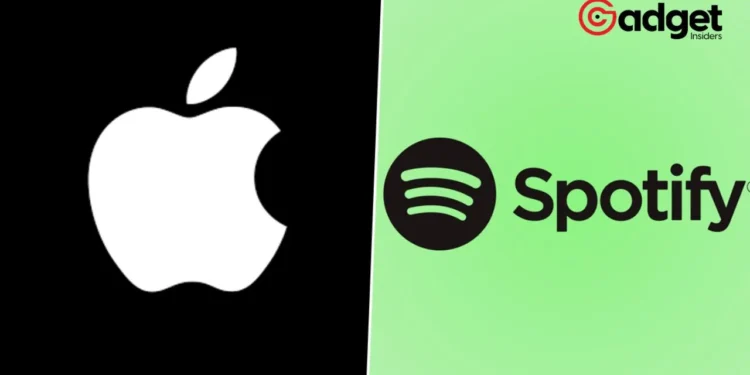In the ever-evolving landscape of digital technology, tensions between giants are not uncommon. Yet, the latest outcry led by Spotify against Apple marks a significant chapter in the ongoing saga of digital market competition and regulation. With a coalition of 33 companies, Spotify has taken a bold step by lodging a formal complaint with the European Union, accusing Apple of failing to align with the impending Digital Markets Act (DMA) requirements.
This move underscores a growing discontent among tech firms over Apple’s dominance and its approach to market competition.

The Crux of the Complaint
At the heart of Spotify’s grievance is the accusation that Apple’s forthcoming adjustments are not in compliance with the DMA, a landmark legislation aimed at ensuring fair competition in the digital market.
The Swedish streaming behemoth, along with its allies, argues that Apple’s policies on sideloading, its restrictive terms for developers, the introduction of new fees, and concerns over privacy and security measures fall short of the DMA’s standards. This, they claim, hinders their ability to deliver the benefits of the DMA to consumers promptly.
A History of Discontent
Spotify’s stance against Apple is not a new development. The company has been a vocal critic of Apple’s App Store policies for years, challenging what it perceives as unfair practices that stifle competition and innovation. This latest complaint is but a continuation of Spotify’s long-standing effort to call for a level playing field in the tech industry.
EU slaps Apple with record €1.8 billion antitrust fine in Spotify dispute https://t.co/uo8aZnFKCq pic.twitter.com/vyyoSMSo4P
— Voice of Europe 🌍 (@V_of_Europe) March 4, 2024
The DMA: A Test of Commitment to Fair Competition
The DMA is set to reshape the digital market landscape in the EU, aiming to curb the power of tech giants and promote fair competition. Spotify’s call for Apple to “play fair” in light of the DMA’s implementation is a significant moment, highlighting the importance of the legislation in regulating the conduct of digital market players.
The EU’s response to this complaint will indeed serve as a litmus test for the DMA’s effectiveness in ensuring a competitive and innovative digital market.
The Ripple Effect of Spotify’s Defiance
Spotify’s challenge to Apple’s dominance is not an isolated incident. It reflects a broader movement among tech companies and developers seeking to assert their rights and push back against what they view as restrictive and monopolistic practices.
The involvement of other notable companies and associations in the complaint underscores the widespread concern over Apple’s policies and the desire for a more equitable digital ecosystem.

Spotify: A Call for Change
The unfolding dispute between Spotify and Apple over DMA compliance is more than a mere corporate skirmish; it is a reflection of the broader challenges facing the digital market today. As the EU prepares to implement the DMA, the actions it takes in response to Spotify’s complaint will be closely watched by industry players and consumers alike.
The outcome of this dispute could set a precedent for how digital market regulations are enforced in the future, potentially leading to a more open, competitive, and innovative tech landscape.
In an era where digital technology plays a central role in our lives, the importance of fair competition and consumer choice cannot be overstated. As Spotify and its allies stand up to Apple, they not only seek to safeguard their interests but also to champion the principles of fairness and innovation that should underpin the digital market.
The resolution of this conflict will undoubtedly have far-reaching implications for the tech industry, signaling the direction of future regulatory and competitive dynamics in the digital age.










